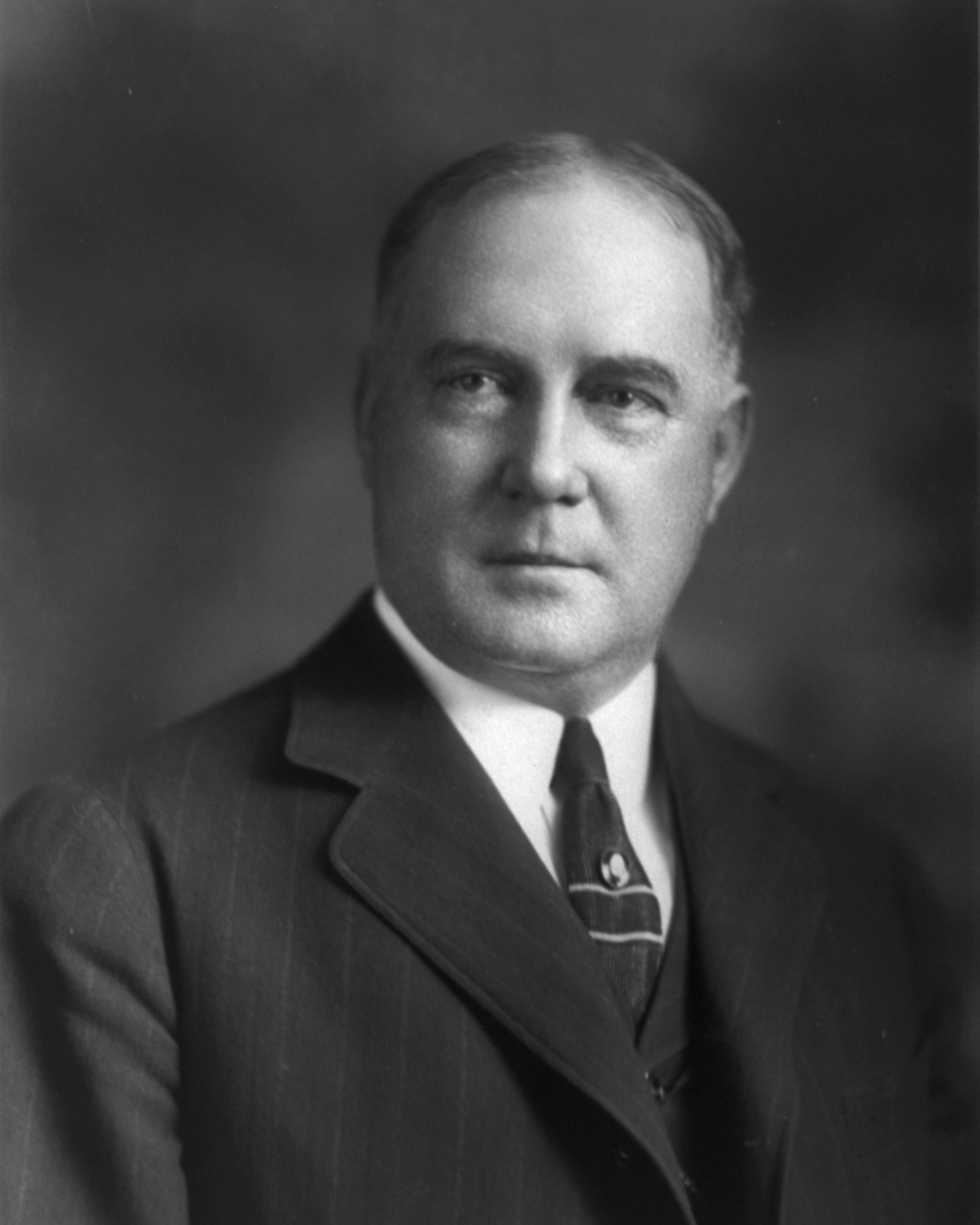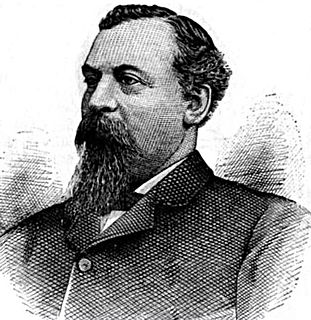Career
Garber taught in Well's Memorial Institute in Boston in 1906 and 1907, then became the Secretary of Emerson College in 1907 and 1908. He returned to Timberville, Virginia, in 1908 and was employed as a bank cashier until 1924.

Emerson College is a private college in downtown Boston, Massachusetts. Founded in 1880 by Charles Wesley Emerson as a "school of oratory," the college offers more than three dozen degree programs in the area of Arts and Communication and is accredited by the New England Association of Schools and Colleges. Located in Boston's Washington Street Theatre District on the edge of the Boston Common, the school also maintains buildings in Los Angeles and the town of Well, The Netherlands.

Timberville is a town in Rockingham County, Virginia, United States. The population was 2,522 at the 2010 census, which was a significant increase from the 1,739 reported in the 2000 census. It is part of the Harrisonburg Metropolitan Statistical Area.
Rockingham County voters elected Garber and William Ruebush as their (part-time) representatives in the Virginia House of Delegates in 1920, the pair defeating two other men that year, but losing their re-election bid to others in 1922. [2] In 1924, Garber was elected treasurer of Rockingham County, and served from 1924 to 1929. He was member of and was interested in various orchard and canning organizations.

The Virginia House of Delegates is one of two parts in the Virginia General Assembly, the other being the Senate of Virginia. It has 100 members elected for terms of two years; unlike most states, these elections take place during odd-numbered years. The House is presided over by the Speaker of the House, who is elected from among the House membership by the Delegates. The Speaker is usually a member of the majority party and, as Speaker, becomes the most powerful member of the House. The House shares legislative power with the Senate of Virginia, the upper house of the Virginia General Assembly. The House of Delegates is the modern-day successor to the Virginia House of Burgesses, which first met at Jamestown in 1619. The House is divided into Democratic and Republican caucuses. In addition to the Speaker, there is a majority leader, majority caucus chair, minority leader, minority caucus chair, and the chairs of the several committees of the House.
In 1928, voters elected Garber as a Republican to the Seventy-first Congress. He defeated veteran Democrat Thomas W. Harrison, but lost his re-election bid in 1930 to John W. Fishburne.

The Seventy-first United States Congress was a meeting of the legislative branch of the United States federal government, consisting of the United States Senate and the United States House of Representatives. It met in Washington, D.C. from March 4, 1929, to March 4, 1931, during the first two years of Herbert Hoover's presidency. The apportionment of seats in the House of Representatives was based on the Thirteenth Decennial Census of the United States in 1910. Both chambers had a Republican majority. This congress saw the most special elections of any congress with 27 in all.

Thomas Walter Harrison was a Virginia lawyer and politician. He served in the Senate of Virginia and in the United States House of Representatives.
John Wood Fishburne was a Virginia Congressman and cousin to Congressmen Fontaine Maury Maverick and James Luther Slayden of Texas. The three men are related to the oceanographer, Matthew Fontaine Maury of Virginia.
After Congress, Garber served as chief of the field and processing-tax divisions at the Internal Revenue Office in Richmond, Virginia from 1931 to 1935. He was a delegate to the Republican National Convention in 1932, but lost another attempt to return to Congress in 1940.

Richmond is the capital of the Commonwealth of Virginia in the United States. It is the center of the Richmond Metropolitan Statistical Area (MSA) and the Greater Richmond Region. Richmond was incorporated in 1742 and has been an independent city since 1871.
The Republican National Convention (RNC) is a series of presidential nominating conventions of the United States Republican Party since 1856. Administered by the Republican National Committee, the stated purpose of the convocation is to nominate an official candidate in an upcoming U.S. presidential election, and to adopt the party platform and rules for the election cycle.
When Aubrey G. Weaver died, Garber won a special election and served in the Virginia State Senate from 1945 to 1947. [3] He later resumed operation of commercial orchards, and died in Harrisonburg, Virginia on December 2, 1953. He was interred in Church of the Brethren Cemetery in Timberville, Virginia.
This page is based on this
Wikipedia article Text is available under the
CC BY-SA 4.0 license; additional terms may apply.
Images, videos and audio are available under their respective licenses.

Andrew Jackson Montague was a Virginia lawyer and American politician. He served as the 44th Governor of Virginia, from 1902 to 1906, and a Congressman from 1912 until his death in 1937. A Democrat, Montague is best remembered as the first Virginia governor since the American Civil War not to have served in the Confederate military. Initially a Progressive, Governor Montague expanded the state capitol building, supported public education and the Good Roads Movement and opposed the Martin Organization. However, later as U.S. Congressman, he became a Conservative Democrat and supporter of the Byrd Organization.

Absalom Willis Robertson was an American politician from Virginia who served over 50 years in public office. A member of the Democratic Party and ally of the Byrd Organization led by fellow U.S. Senator Harry F. Byrd, Robertson represented Virginia in the U.S. House of Representatives (1933–1946) and the U.S. Senate (1946–1966), and had earlier served in the Virginia General Assembly. A Dixiecrat or member of the conservative coalition during his congressional career, Robertson was also the father of televangelist Pat Robertson.
Nathan Huff Miller is a Virginia lawyer and political figure. A Republican, he served in both houses of the Virginia General Assembly. He is currently the managing partner of Harrisonburg law firm Miller, Earle & Shanks.

James Hay served in both houses of the Virginia General Assembly, was a United States Representative from Virginia and a Judge of the Court of Claims.
Edward Watts Saunders was a Virginia lawyer, politician and judge, who served as Speaker of the Virginia House of Delegates, U.S. Representative and Justice of the Supreme Court of Virginia.

John Thomas Harris was a nineteenth-century politician, lawyer and judge from Virginia. He often referred to after the American Civil War as "Judge Harris", even after his election to Congress. He was the first cousin of John Hill.

John James Davis was an attorney and politician who helped found West Virginia and later served as a United States Representative in Congress from that state.

John Paul was a U.S. Representative and federal judge from Virginia.

Julian Vaughan Gary was a U.S. Representative from Virginia.

Burr Powell Harrison was a U.S. Representative from Virginia, son of Thomas W. Harrison.

James Kenneth Robinson was a State Senator and U.S. Representative from Virginia.

Richard Alsop Wise was an educator and politician from Virginia. He was a U.S. Representative for parts of two terms. He was a son of Henry Alexander Wise, grandson of John Sergeant, brother of John Sergeant Wise, and cousin of George Douglas Wise, all U.S. Representatives.
Jacob Yost was an American politician who served as mayor of Staunton, as well as twice represented Virginia's Shenandoah Valley in the United States House of Representatives, from 1887–1889 and 1897–1899.

John Paul Jr. was a United States Representative from Virginia, and later a United States District Judge of the United States District Court for the Western District of Virginia.
Tony O. Wilt is an American politician. A Republican, he was elected to the Virginia House of Delegates in 2010. He currently represents the 26th district, made up of the city of Harrisonburg and part of Rockingham County in the Shenandoah Valley.
Peachy Harrison was a nineteenth-century American politician, Sheriff and physician from Virginia.
John Chesterfield Woodson was a nineteenth-century American lawyer and politician from Virginia.
Jacob Nicholas Liggett was a Virginia lawyer, Confederate officer, farmer and politician from Virginia.
Bonnie Lineweaver Paul is a Virginia lawyer and Republican politician, who represented a district in the Blue Ridge Mountains in the Virginia House of Delegates for two terms.























